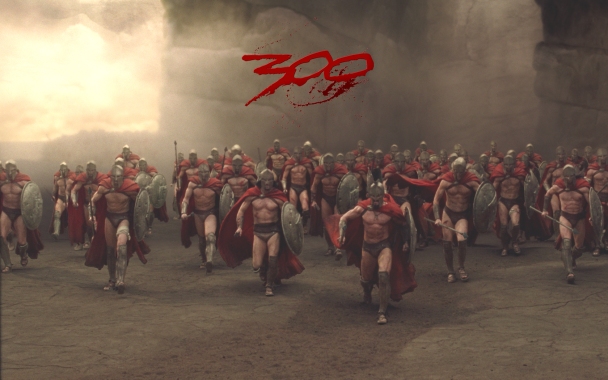Do you start with the inner landscape of the individual and project outward to his or her performance in office, or do you leave the inner weather of the candidates’ spiritual and psychological health to their therapists and pastors?
Each of the alternatives has had its powerful champions. In “The Tenure of Kings and Magistrates,” John Milton tells us that when men first felt the need to institute government in order to ensure civil order, they chose one “above the rest” because of “the eminence of his wisdom and integrity.” If only Adam had not fallen, Milton adds, there would have been no necessity to choose anyone, for in the beginning “all men were naturally born free, being the image and resemblance of God himself” and were therefore born “to command not to obey.”
That’s just the trouble, declared his contemporary (and philosophical opposite) Thomas Hobbes. Hobbes agrees that in the abstract all men are equal and equally free, but that means that, left to their own devices, they will prey on one another and produce a general instability that will lead to most lives being “nasty, brutish and short.” Hobbes doesn’t believe in the natural goodness invoked by Milton (“the eminence of his wisdom and integrity”), and so he opts for the artificial solution of granting to one man (called the sovereign) all the rights and powers in the state provided that he secure the property of every man against the depredations of his neighbors and protect the country from its foreign enemies.
The sovereign’s ability to make good on these obligations will have nothing to do with his moral character — “the question of who is the better man,” Hobbes says, “has no place in the condition of mere nature” — and everything to do with his political skills. Hobbes insists that the “worthiness” to lead is different from “the worth or value of a man and also from his merit.” What is important is “a particular power or ability for that wherof he is said to be worthy; which particular ability is usually named fitness or aptitude.” Is he good at the job? — does he have the aptitude? — is a more pertinent question than is he good?
Hobbes was anticipated by Machiavelli, who noted that everyone always proclaims “how praiseworthy it is in a prince to keep faith and to live with integrity and not with craft.”
But, says Machiavelli, everyone is wrong. A prince should keep faith until he discovers that those to whom he has given it are working against his interests. In those circumstances “a wise lord cannot, or ought not … to keep faith … when the reasons that caused him to pledge it exist no longer.” Nor, he adds, “will there ever be wanting to princes legitimate reasons to excuse this nonobservance.” That is, you can always plausibly claim to be keeping faith at the very moment you break it; but when you do so, Machiavelli counsels, you “must know well how to disguise this characteristic, and be a great pretender and dissembler.”
In short, craft before integrity, but have sufficient craft to produce integrity’s image. Machiavelli’s hero in this regard is the notoriously corrupt Pope Alexander VI, who “did nothing else but deceive men. … [N]evertheless his deceits always succeeded according to his wishes, because he well understood this side of mankiSource: Integrity or Craft: The Leadership QuestionDo you start with the inner landscape of the individual and project outward to his or her performance in office, or do you leave the inner weather of the candidates’ spiritual and psychological health to their therapists and pastors?
Each of the alternatives has had its powerful champions. In “The Tenure of Kings and Magistrates,” John Milton tells us that when men first felt the need to institute government in order to ensure civil order, they chose one “above the rest” because of “the eminence of his wisdom and integrity.” If only Adam had not fallen, Milton adds, there would have been no necessity to choose anyone, for in the beginning “all men were naturally born free, being the image and resemblance of God himself” and were therefore born “to command not to obey.”
That’s just the trouble, declared his contemporary (and philosophical opposite) Thomas Hobbes. Hobbes agrees that in the abstract all men are equal and equally free, but that means that, left to their own devices, they will prey on one another and produce a general instability that will lead to most lives being “nasty, brutish and short.” Hobbes doesn’t believe in the natural goodness invoked by Milton (“the eminence of his wisdom and integrity”), and so he opts for the artificial solution of granting to one man (called the sovereign) all the rights and powers in the state provided that he secure the property of every man against the depredations of his neighbors and protect the country from its foreign enemies.
The sovereign’s ability to make good on these obligations will have nothing to do with his moral character — “the question of who is the better man,” Hobbes says, “has no place in the condition of mere nature” — and everything to do with his political skills. Hobbes insists that the “worthiness” to lead is different from “the worth or value of a man and also from his merit.” What is important is “a particular power or ability for that wherof he is said to be worthy; which particular ability is usually named fitness or aptitude.” Is he good at the job? — does he have the aptitude? — is a more pertinent question than is he good?
Hobbes was anticipated by Machiavelli, who noted that everyone always proclaims “how praiseworthy it is in a prince to keep faith and to live with integrity and not with craft.”
But, says Machiavelli, everyone is wrong. A prince should keep faith until he discovers that those to whom he has given it are working against his interests. In those circumstances “a wise lord cannot, or ought not … to keep faith … when the reasons that caused him to pledge it exist no longer.” Nor, he adds, “will there ever be wanting to princes legitimate reasons to excuse this nonobservance.” That is, you can always plausibly claim to be keeping faith at the very moment you break it; but when you do so, Machiavelli counsels, you “must know well how to disguise this characteristic, and be a great pretender and dissembler.”
In short, craft before integrity, but have sufficient craft to produce integrity’s image. Machiavelli’s hero in this regard is the notoriously corrupt Pope Alexander VI, who “did nothing else but deceive men. … [N]evertheless his deceits always succeeded according to his wishes, because he well understood this side of mankind.”
In short, craft before integrity, but have sufficient craft to produce integrity’s image. Machiavelli’s hero in this regard is the notoriously corrupt Pope Alexander VI, who “did nothing else but deceive men. … [N]evertheless his deceits always succeeded according to his wishes, because he well understood this side of mankind.”
Source: Integrity or Craft: The Leadership Question


